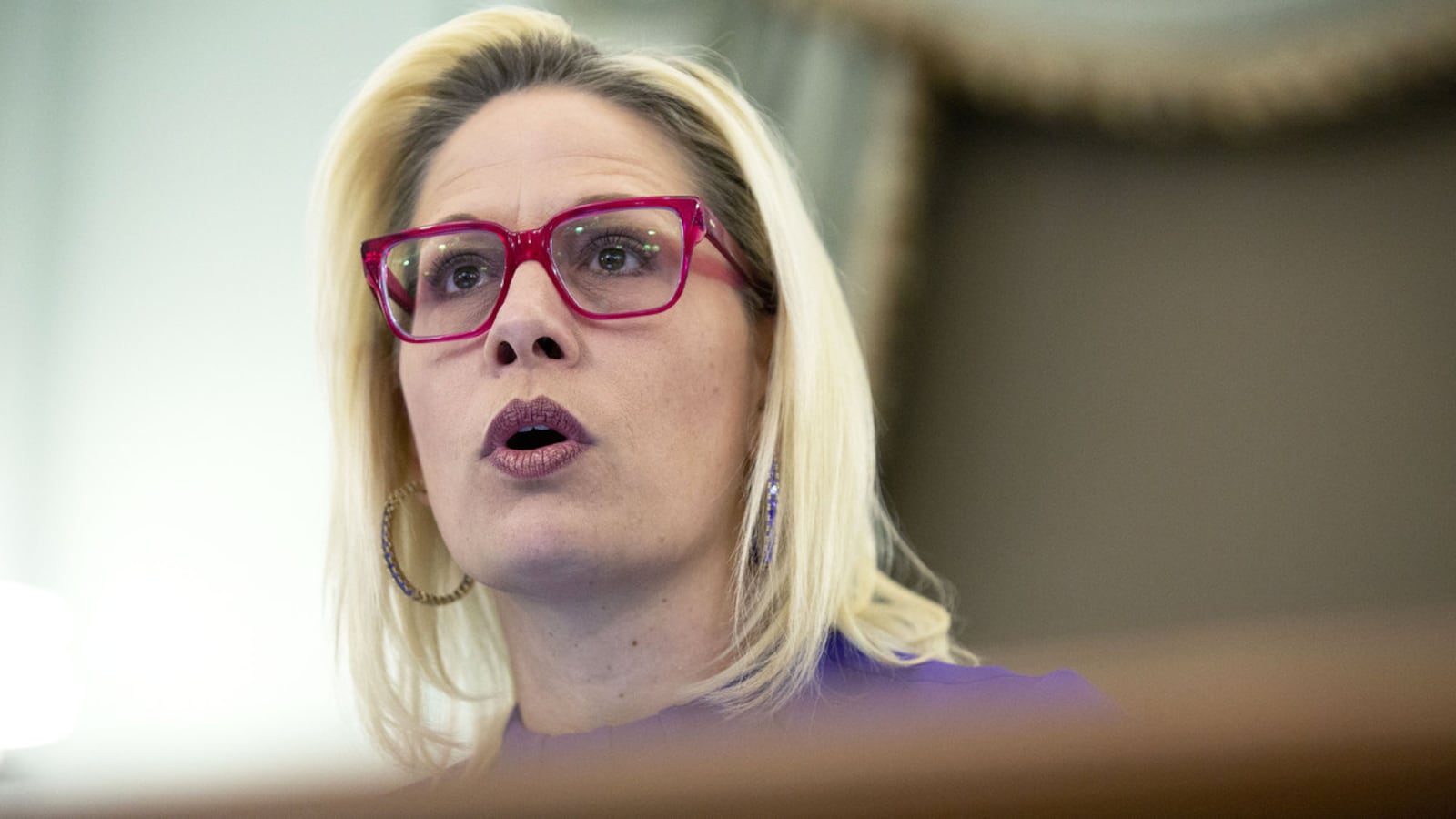It was supposed to be a tax break with a noble purpose: If you own land or buildings, you can relinquish some of your property rights—like development—and get something back from Uncle Sam for your contributions to conservation.
Instead, the so-called “conservation easement” has become one of the most abused tax tricks in America.
Years ago, rich investors learned that if they team up to acquire cheap land, get it overvalued by an appraiser, and then promise not to develop it, they can make millions. Ever since the practice started, Republicans and Democrats have tried to curb this practice, which cost U.S. taxpayers an estimated $9.2 billion in 2018. And as Democrats try to pass their expansive social spending bill—the Build Back Better Act—they finally have an ideal chance.
Ending the tax break could be a small-but-needed offset for other programs, and it would restore a measure of fairness that both parties agree is currently lacking in the tax code.
In the evenly-split Senate, however, all it takes is one determined Democratic senator to kill any provision in that sweeping bill.
Enter Kyrsten Sinema. The centrist senator from Arizona is the only Democrat left who is voicing significant opposition to reforming conservation easements as part of this legislative push, according to three sources familiar with discussions on Capitol Hill.
Sinema’s opposition in the caucus is not just lonely, but strident—leaving some Democrats baffled. Privately, Sinema has also expressed doubt regarding a compromise proposal to have reforms apply only to future conservation easement deductions and leave past ones alone.
Inside and outside the Capitol, many have tried to win Sinema over.
On Dec. 7, over a dozen conservation advocacy groups—who believe abuse of the tax break is endangering its original mission—wrote to Sinema to directly make the case to her.
“We respectfully ask you to stand with us—and all in our community—by urging your leadership to curb abuse and restore the integrity of this cherished and worthy conservation program,” said the organizations, according to a copy of the letter viewed by The Daily Beast.
John LaBombard, a spokesperson for Sinema, told The Daily Beast that the senator has heard from Arizona officials and constituent groups—specifically citing hospitals and colleges—who have concerns with “the approach under consideration for this legislation.”
Sinema “shares the goal of stopping abusive comprehensive easement practices and believes that comprehensive reforms are needed,” LaBombard said, but added that she “believes that such reforms must be designed thoughtfully, after a robust review process that includes the views of impacted stakeholders—because oversimplified legislation could have a chilling effect on legitimate charitable donations of lands for conservation, hurting states like Arizona.”
“The senator looks forward to continuing discussions with the bipartisan group of senators examining this challenge,” LaBombard said.
As the Senate works to finish the Build Back Better Act by Christmas, some key policy issues are still unresolved, and Democrats remain hopeful that they still have a shot to include conservation easement reform in the final version.
But over the course of months of nonstop negotiating, Sinema has shown a willingness to single-handedly kill or modify aspects of the legislation—particularly the proposals to pay for it through changes in the U.S. tax code. While her fellow centrist Sen. Joe Manchin (D-WV) has largely been on board with raising tax rates for corporations and the wealthiest Americans, Sinema hasn’t.
And although Sinema has gotten her way on key items, like shutting down a hike of the corporate tax rate, her vote in favor of the final legislation is far from assured.
If Sinema holds firm to her opposition and blocks conservation easement reform on the Build Back Better Act, it will be a major victory for a small but well-resourced special interest fighting to save this tax break—a fitting coda to this near-perfect parable of how The Swamp operates in 2021.
Over the years, the effort to secure conservation easements has become something of a real business. So-called “promoters” of the deductions pitch and recruit investors to buy into easements as they might with other, more common investment products. Investors give the promoter money in exchange for a share of the easement—basically the donation of property rights—which, in turn, they can claim for a tax break.
The process of appraising the value of the land for tax deduction purposes is where the returns are most inflated: there are examples of tracts of land being bought for thousands of dollars an acre before being appraised at dozens of times the value for tax purposes.
And those involved have adopted the tried-and-true D.C. influence game playbook as they seek to retain a tax break that has become a livelihood.
In 2016, a nonprofit advocacy group called Partnership for Conservation was formed, with the purpose of pushing back against Internal Revenue Service scrutiny of those filing the tax deduction—framed as overly aggressive and antagonistic—and arguing that the deduction is vital for historic conservation and environmental protection.
An original cofounder of P4C was Frank Schuler, an investor whose firm was among the chief “promoters” of conservation easement schemes to investors. Schuler is a focus of the bipartisan 2019 report from the Senate Finance Committee documenting abuse of the tax deduction.
As part of that investigation, the committee obtained slide decks in which prospective investors were told by his firm that they could receive a charitable deduction of more than $4 for every $1 they contributed to a partnership entity involved in property transactions.
According to the report, a number of Schuler ventures relied on an appraiser who systematically over-valued properties—like mines—and netted investors hefty deductions as they promised to forego development on properties facing little risk of it.
Schuler has since left P4C, but it remains the lead group pushing back against proposals to reform the tax break, both publicly and privately. It has argued that the real problem is the appraisal process, not the tax deduction itself, because inflated appraiser values are what allow investors to reap such a return.
But the language proposed in Build Back Better seeks to curb abuse of this tax shelter by limiting deductions to 250 percent of what the land was bought for, if the break is claimed within three years of a partnership purchasing the land. It is based on a bill written by Sen. Steve Daines, a Montana Republican, and Sen. Debbie Stabenow, a Michigan Democrat, which has yet to become law despite its bipartisan support.
Initially, lawmakers wanted that rule to apply retroactively—opening up past transactions to enforcement under the rule, which is an area of concern for Sinema and others, though retroactivity would have dated to when the IRS put suspected tax cheats on notice. Public statements from P4C, and other critics of reform, have focused on the retroactive aspect as most problematic.
P4C, and other pro-conservation easement entities, have spent a combined total of nearly $1 million lobbying the Senate this year on the issue.
According to public disclosure filings, P4C has spent $720,000 so far this year on the lobbying effort this year, hiring the elite D.C. lobbying firm Holland & Knight.
The group has also blanketed Facebook with heart-tugging ads featuring fuzzy critters that convey the impression they are focused on climate change and environmental preservation. “Time is running out for our natural lands and wildlife,” reads one ad, featuring a forlorn-looking racoon. “Will you help save them?”
“Should Congress pass dangerous legislation that puts our wildlife and climate at risk?” prods another, featuring a squirrel with a nut. (It helpfully poses “yes” or “no” options to that question.)
Other high-powered lobbyists have gotten involved to fight conservation easement reforms. According to filings, an obscure Georgia-based entity, Red Oak Reserve LLC, paid $190,000 to hire Waxman Strategies, the lobbying firm run by former Rep. Henry Waxman (D-CA), the veteran lawmaker with significant cred on environmental issues.
There is no public evidence of Sinema’s links with the advocates or lobbyists involved. But sources close to the fight suspect she has been a target of this niche industry’s efforts, given her status as a key swing vote in the chamber and her relatively conservative position for a Democrat on tax issues.
The Partnership for Conservation did not respond to an emailed request for comment.
Lori Faeth has been on the opposite side from P4C on this issue, as government relations director for the Land Trust Alliance, a nonprofit group that has advocated an end to abuse of conservation easements.
“None of their so-called solutions would actually stop the abuse of conservation donations,” Faeth said of P4C.
Faeth argued that if Congress does nothing to stop this practice, the ability of smaller, less wealthy property owners to take advantage of the tax deduction for its intended purpose will be endangered. In 2018, anywhere from 2,000 to 2,500 conservation easements were for “the right reasons,” she said, with the total of tax breaks claimed topping out at $1 billion. That is far less than the $9 billion claimed in unwarranted deductions, per IRS data.
Even critics of how the IRS has cracked down on this practice say that Congress has a role to do something about it.
Pete Sepp, president of the National Taxpayers Union, has concerns that the IRS has stripped away “due process” for people who file for the deduction, and argues that the agency should provide more guidance on how to comply with the law.
Still, Sepp said a reform bill that does not apply to past transactions but focuses on future ones—the compromise Sinema is said to doubt—would be a “huge breakthrough.”
“If the interest is getting the tax policy right, starting with prospective, rather than retroactive provisions, would be great,” said Sepp.









